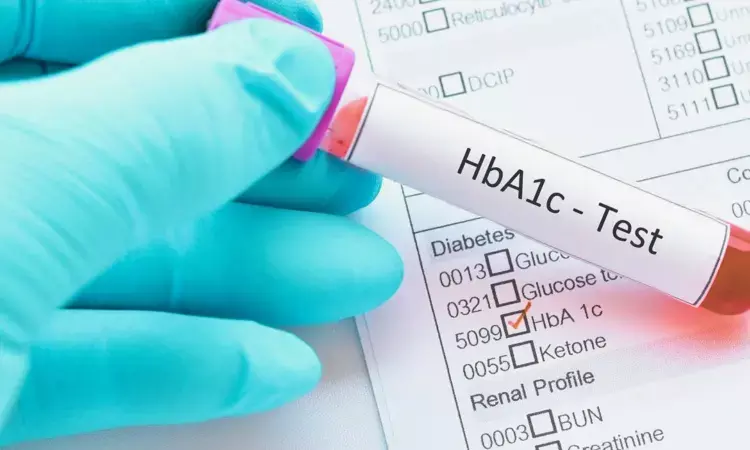- Home
- Medical news & Guidelines
- Anesthesiology
- Cardiology and CTVS
- Critical Care
- Dentistry
- Dermatology
- Diabetes and Endocrinology
- ENT
- Gastroenterology
- Medicine
- Nephrology
- Neurology
- Obstretics-Gynaecology
- Oncology
- Ophthalmology
- Orthopaedics
- Pediatrics-Neonatology
- Psychiatry
- Pulmonology
- Radiology
- Surgery
- Urology
- Laboratory Medicine
- Diet
- Nursing
- Paramedical
- Physiotherapy
- Health news
- Fact Check
- Bone Health Fact Check
- Brain Health Fact Check
- Cancer Related Fact Check
- Child Care Fact Check
- Dental and oral health fact check
- Diabetes and metabolic health fact check
- Diet and Nutrition Fact Check
- Eye and ENT Care Fact Check
- Fitness fact check
- Gut health fact check
- Heart health fact check
- Kidney health fact check
- Medical education fact check
- Men's health fact check
- Respiratory fact check
- Skin and hair care fact check
- Vaccine and Immunization fact check
- Women's health fact check
- AYUSH
- State News
- Andaman and Nicobar Islands
- Andhra Pradesh
- Arunachal Pradesh
- Assam
- Bihar
- Chandigarh
- Chattisgarh
- Dadra and Nagar Haveli
- Daman and Diu
- Delhi
- Goa
- Gujarat
- Haryana
- Himachal Pradesh
- Jammu & Kashmir
- Jharkhand
- Karnataka
- Kerala
- Ladakh
- Lakshadweep
- Madhya Pradesh
- Maharashtra
- Manipur
- Meghalaya
- Mizoram
- Nagaland
- Odisha
- Puducherry
- Punjab
- Rajasthan
- Sikkim
- Tamil Nadu
- Telangana
- Tripura
- Uttar Pradesh
- Uttrakhand
- West Bengal
- Medical Education
- Industry
Study Reveals Strong Link Between Elevated HbA1c and Increased Hypertension Risk

China: A new analysis of data from the National Health and Nutrition Examination Survey (NHANES) 2011-2018 has highlighted a significant association between elevated glycosylated hemoglobin (HbA1c) levels and the risk of hypertension (HTN) in US adults.
"HbA1c levels are strongly linked to an increased risk of hypertension, with individuals exhibiting 22% higher odds of developing HTN compared to those with lower HbA1c levels. Additionally, the risk of isolated systolic hypertension (ISH) was 30% greater in those with elevated HbA1c," the researchers reported in BMC Cardiovascular Disorders. The study also found that the risk of HTN escalates significantly as HbA1c approaches 5.5%, highlighting the importance of monitoring blood sugar levels to mitigate the risk of developing hypertension.
HbA1c, a key marker of long-term blood glucose control, is widely used to monitor and manage diabetes. Given that hypertension and diabetes often coexist, monitoring HbA1c levels becomes crucial not only for managing diabetes but also for assessing the risk of developing hypertension, a common comorbidity in diabetic patients. Considering this, Wenbo Xu, Department of Laboratory, People’s Hospital of Yuxi City, Yuxi City, Yunnan Province, P.R. China, and colleagues seek to clarify the relationship between HTN and HbA1c, as well as the links between different types of hypertension and HbA1c levels.
For this purpose, the researchers analyzed data from the NHANES 2011–2018, which included anthropometric measurements and biochemical tests. Participants were categorized based on their HbA1c levels into groups of diabetes, prediabetes, and no diabetes. Logistic regression analyses were conducted to examine the correlations between HbA1c levels and the risks of HTN, ISH, and isolated diastolic hypertension (IDH). A fitting curve was also created to illustrate the relationship between HTN and HbA1c.
The study revealed the following findings:
- Among the 10,503 participants, the prevalence of hypertension (HTN) increased significantly with higher HbA1c levels.
- In the adjusted model, compared to the lowest HbA1c group, the odds ratio (OR) for the highest HbA1c group was 1.22.
- The risk of isolated systolic hypertension (ISH) increased significantly with higher HbA1c levels in group 3 compared to group 1 (OR: 1.3).
- The adjusted model showed no significant association between HbA1c levels and the risk of isolated diastolic hypertension.
The study highlights the independent role of HbA1c in increasing the risk of hypertension among adults in the United States, emphasizing the common occurrence of both abnormal glucose metabolism and HTN.
"The findings particularly show that the risk of developing HTN rises most sharply when HbA1c levels near 5.5%," the researchers concluded.
Reference:
Luo, B., Xu, W., Luo, F. et al. Association between elevated glycosylated hemoglobin levels and hypertension among US adults: NHANES 2011–2018. BMC Cardiovasc Disord 25, 58 (2025). https://doi.org/10.1186/s12872-025-04503-3
Dr Kamal Kant Kohli-MBBS, DTCD- a chest specialist with more than 30 years of practice and a flair for writing clinical articles, Dr Kamal Kant Kohli joined Medical Dialogues as a Chief Editor of Medical News. Besides writing articles, as an editor, he proofreads and verifies all the medical content published on Medical Dialogues including those coming from journals, studies,medical conferences,guidelines etc. Email: drkohli@medicaldialogues.in. Contact no. 011-43720751


